Chapter 9 Family and Community Notes & Summary
November 5, 2024Chapter 11 Grassroots Democracy Part 2 Local Government in Rural Areas Notes & Summary
November 5, 2024Introduction
Human beings have been living in communities for a long time. When many people live together, disagreements and disorder can arise, making rules necessary to maintain harmony. Just like at home, in school, or on the road, society needs rules to function smoothly. If no one followed these rules, there would be chaos. But who makes these rules, and how are they enforced? This process of making decisions, organizing societal life with rules, and ensuring they are followed is called governance. The group or system that makes and enforces these rules is called the government. In this chapter, we’ll explore the fundamentals of governance and the different branches and levels of government.
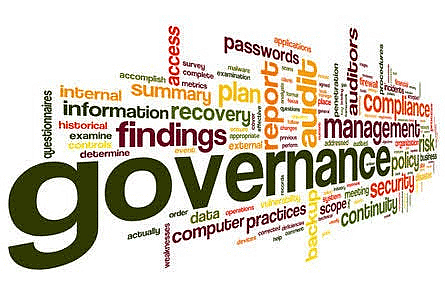
The Importance of Rules
Rules are essential in every aspect of life:
- At Home: Simple rules like bedtime schedules or household chores. These rules help maintain order and ensure that everyone knows their responsibilities.
- In School: Rules for students, teachers, and examinations ensure that education is delivered effectively and fairly. For example, school rules might include dress codes, attendance policies, and classroom behavior guidelines.
- On the Road: Traffic rules for drivers prevent accidents and ensure smooth flow of vehicles. This includes speed limits, traffic signals, and pedestrian crossings.
- In Jobs: Employees and employers follow workplace rules to maintain a safe and productive environment. This includes rules about work hours, job duties, and workplace safety.
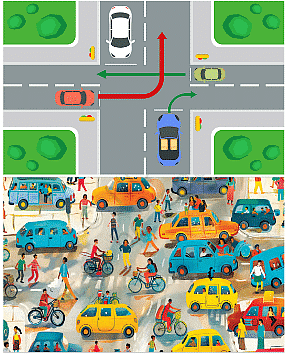
Fun Fact: The phrase “rule of law” means that everyone, including the government, must follow the law. It ensures fairness and justice in society.
Three Organs of Government
Governments are structured into three main branches, each with distinct roles but working together to maintain order and justice:
- The Legislature: This branch makes new laws, updates existing ones, or removes outdated laws. In India, this is done by an assembly of representatives elected by the people. At the national level, this includes the Parliament, which is divided into two houses: the Lok Sabha (House of the People) and the Rajya Sabha (Council of States). State legislatures have similar structures.
- The Executive: This branch implements and enforces the laws. It includes the head of state (such as the President or Prime Minister), ministers, and various agencies responsible for maintaining law and order. For example, the police force and administrative departments fall under the executive.
- The Judiciary: This branch interprets the laws and decides whether someone has broken them. It ensures justice is served and checks the actions of the legislature and executive to maintain balance. The judiciary includes various levels of courts, from lower courts to the Supreme Court, which is the highest judicial authority in India.
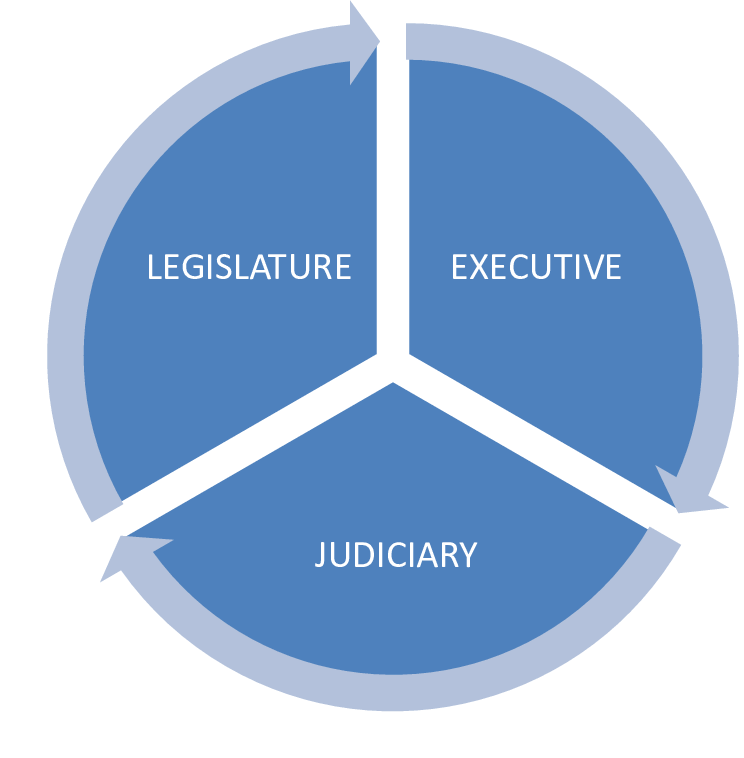
Fun Fact: This separation of powers provides a system of checks and balances, ensuring that no single branch becomes too powerful. Each branch can oversee and limit the actions of the others.
Try yourself:
What is the role of the Judiciary branch in the government?
A.
Makes new laws
B.
Implements and enforces laws
C.
Interprets laws and ensures justice
Correct Answer
D.
Represents the people in the government
Explanation
– The Judiciary branch interprets the laws and decides whether someone has broken them.
– It ensures justice is served and checks the actions of the legislature and executive to maintain balance.
Report a problem
Three Levels of Government
Governance operates at different levels to address various issues effectively. In India, there are three levels:
- Local Government: Deals with local issues like sanitation, road maintenance, and water supply. Local governments include municipalities in urban areas and Panchayats in rural areas. They are closest to the people and handle day-to-day administrative functions.
- State Government: Handles state-wide issues such as education, health, and infrastructure. Each state has its own government, headed by a Chief Minister, and has legislative assemblies that make laws on state matters.
- Central Government: Manages national matters like defense, foreign policy, and large-scale disaster management. The central government, based in New Delhi, is headed by the President and the Prime Minister, along with various central ministries.
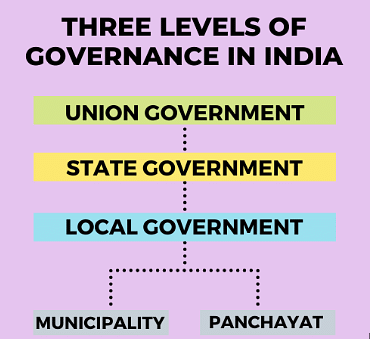
Example
Imagine a flood:
If it’s a small flood affecting a few houses, the local government handles it.
If it affects several towns, the state government steps in.
If it’s a massive flood affecting vast areas, the central government provides aid.
Fun Fact: The motto of the Government of India is “Satyameva Jayate,” which means “Truth alone triumphs.”
Democracy
Democracy is a system where people elect representatives to make decisions on their behalf. The word “democracy” comes from Greek, where “dēmos” means “people” and “kratos” means “rule.” In a democracy, citizens have a say in governance through voting.
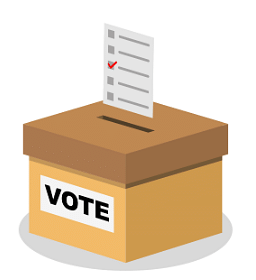
Representative Democracy
In India, citizens elect representatives at various levels:
- Members of Legislative Assembly (MLAs): Elected at the state level.
- Members of Parliament (MPs): Elected at the national level.
These representatives discuss laws, problems, and solutions in their respective assemblies, ensuring that different opinions are heard and considered. The process of elections is overseen by the Election Commission of India, which ensures free and fair elections.
Fun Fact: India is the world’s largest democracy, with about 970 million voters in 2024!
Try yourself:
What is the main responsibility of the local government in India?
A.
Handling national matters like defense.
B.
Addressing state-wide issues such as education.
C.
Managing local issues like sanitation and road maintenance.
Correct Answer
D.
Overseeing large-scale disaster management.
Explanation
– Local governments in India are responsible for addressing local issues that directly impact the daily lives of citizens.
– These issues include sanitation, road maintenance, water supply, and other similar matters.
– Local governments, such as municipalities in urban areas and Panchayats in rural areas, are closest to the people and handle day-to-day administrative functions effectively.
Report a problem
Direct Democracy
Sometimes, direct voting by citizens is used to make decisions. This is known as direct democracy. For instance, in a classroom, students might vote to decide the location of a field trip.
Fun Fact: Grassroots democracy encourages ordinary citizens to participate actively in decision-making processes. This can include local referendums and community meetings where citizens directly voice their opinions.
Inspirational Leader: Dr. A.P.J. Abdul Kalam
Dr. A.P.J. Abdul Kalam, known as the “Missile Man of India,” was a renowned scientist and the 11th President of India. Born in 1931 in Rameswaram, Tamil Nadu, he played a crucial role in India’s space and missile programs. Despite his high status, Dr. Kalam remained connected to the people, inspiring millions with his humility and dedication to education and innovation.
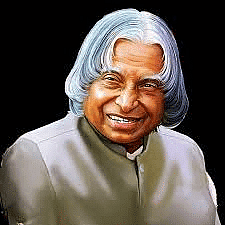
Key Contributions
- Space Program: Contributed to the development of the Polar Satellite Launch Vehicle (PSLV) and the Agni and Prithvi missiles.
- Education: Advocated for educational reforms and scientific research. He encouraged students to dream big and pursue careers in science and technology.
Conclusion
Governance and government are essential for maintaining order and harmony in society. By understanding the roles of the legislature, executive, and judiciary, as well as the different levels of government, we can better appreciate how our society functions. Democracy allows us to have a say in how we are governed, ensuring that everyone’s voice matters. Inspirational leaders like Dr. A.P.J. Abdul Kalam remind us that with dedication and hard work, we can achieve great things.

